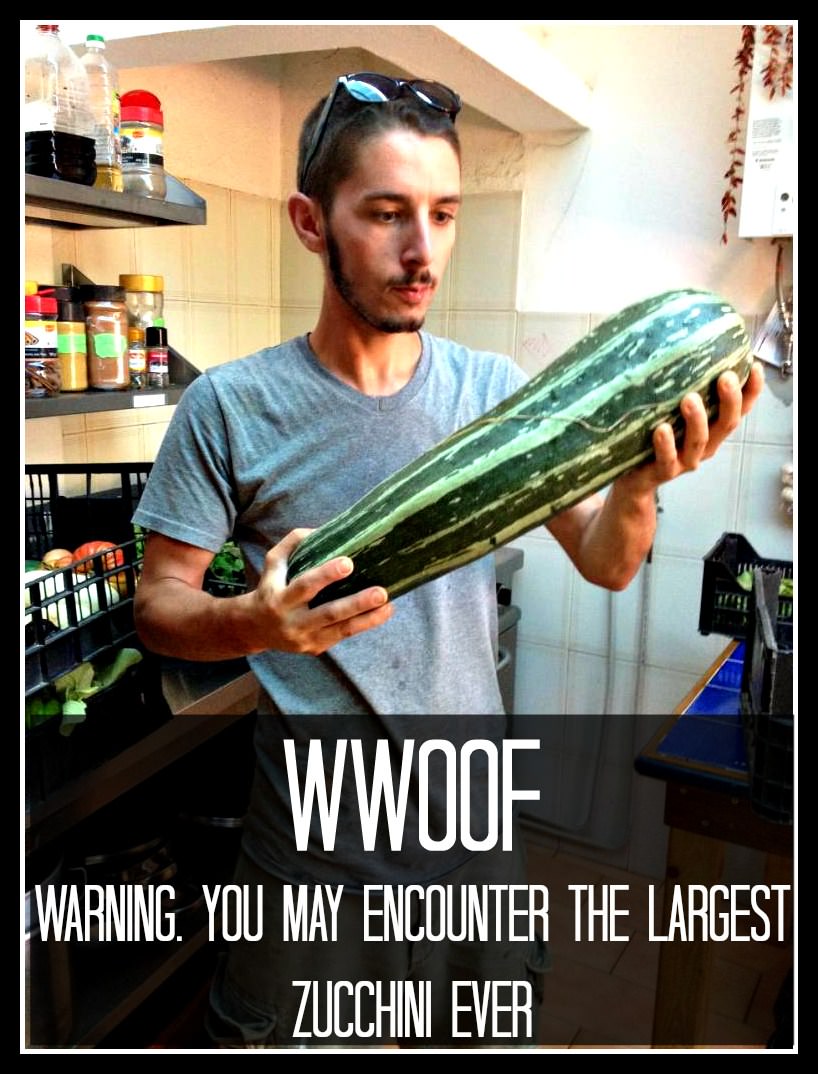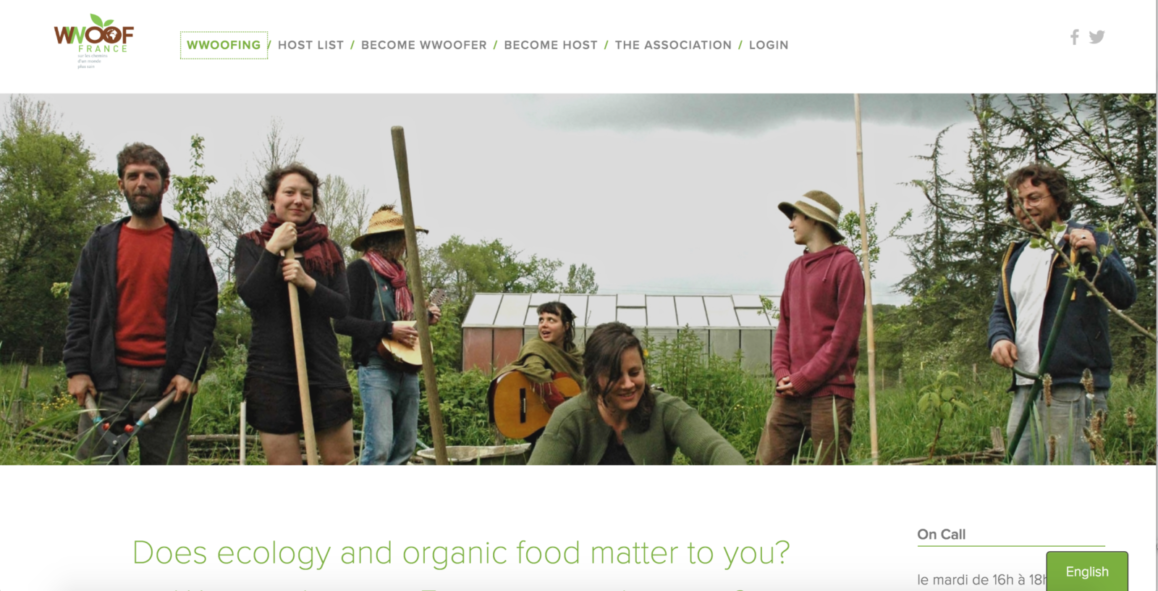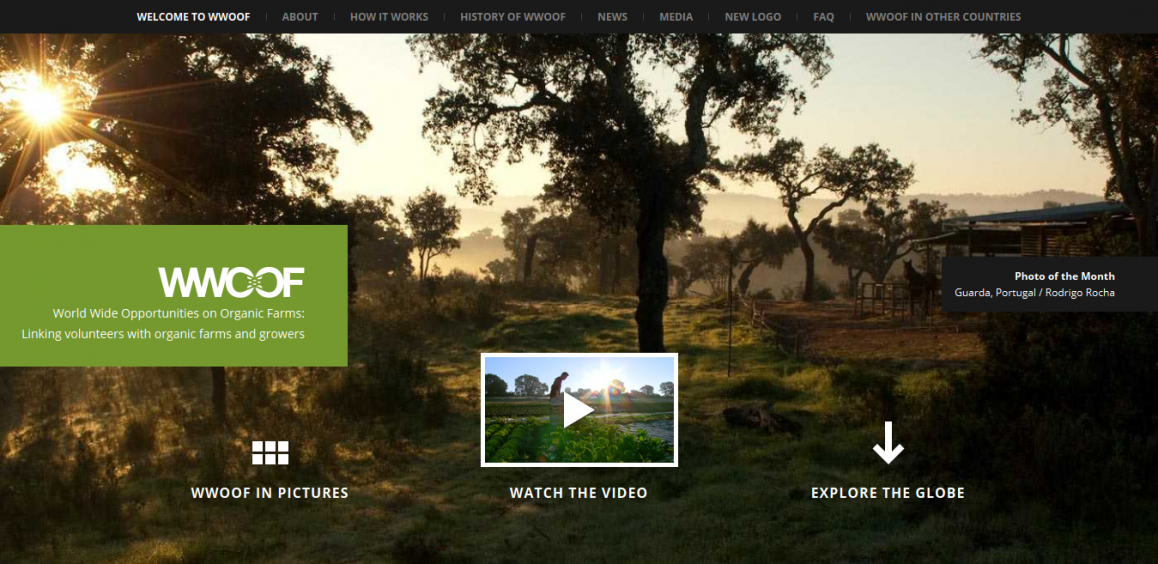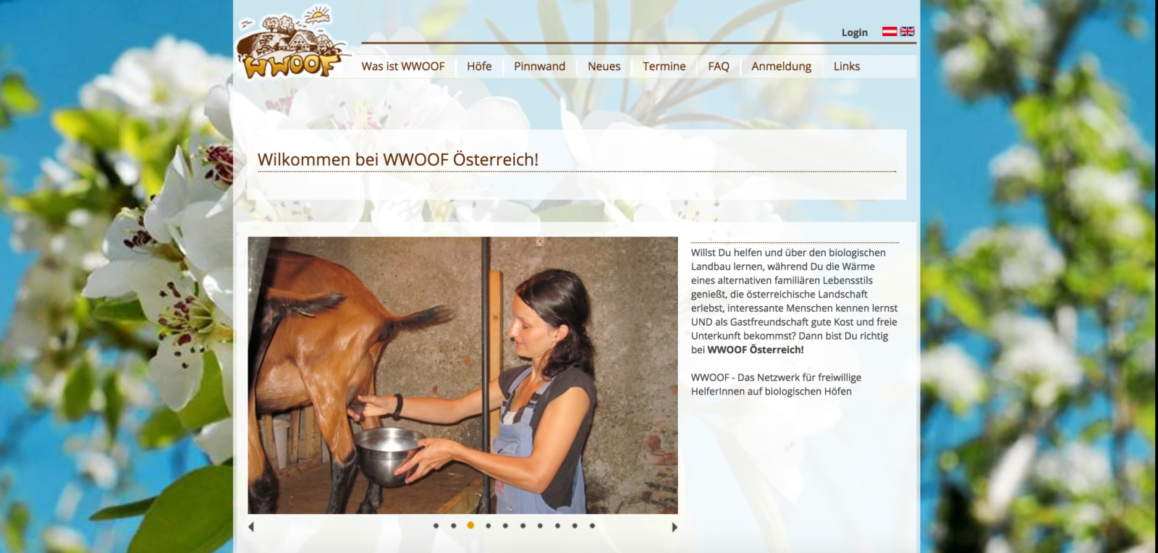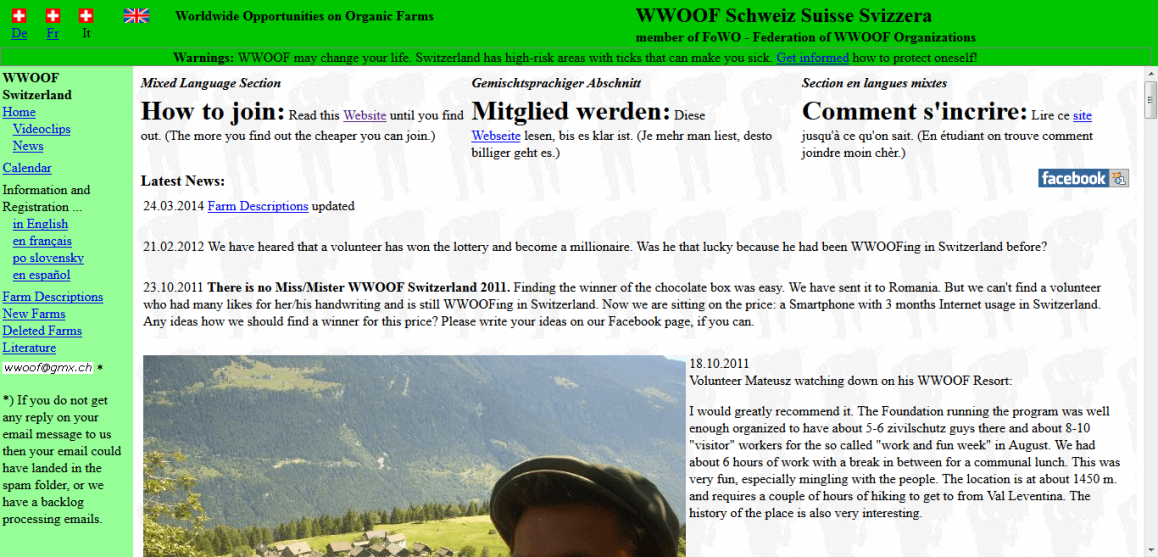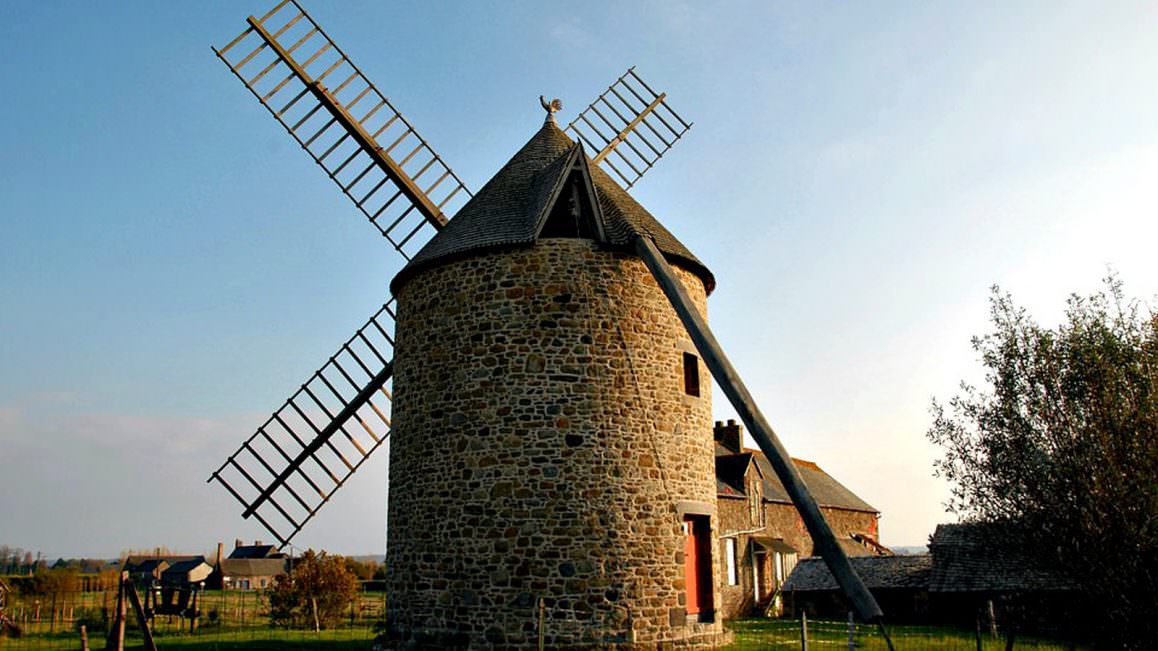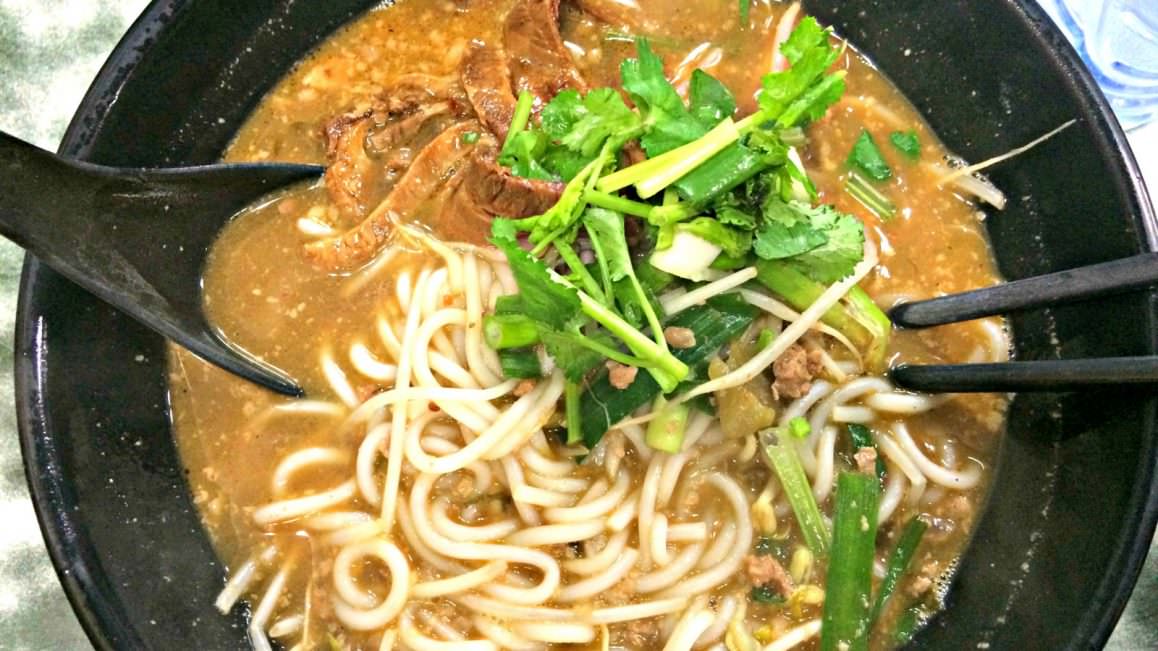Ultimate WWOOFing Guide
Official Guide
There isn’t really an extensive WWOOFing guide on the web. So we decided to make one! Strap in.
Willing Workers on Organic Farms
WWOOFing is a work exchange program, has been around for decades, and has really grown to an incredible level of popularity. Nowadays it seems like every traveler has WWOOFed somewhere in the world, myself included. And for good reason.
In June of 2013, I got a WWOOFing gig on an organic vegetable farm in The Algarve of South Portugal for two months. I would be expected to provide labor on the farm for 6 hours a day, 5 days a week. In return for my work, I would be given three square meals a day, and my choice of a dorm bed, or area to pitch a tent. That was the agreement, and it was the greatest experience of my life.
I could write a book about my time on the farm, but will keep it as brief as possible. A typical day, I would awaken at six am, and start work by six thirty. Under the bleeding Portuguese sunrise and crisp morning air, myself and the other volunteers would participate in a range of activities, ranging from weeding, planting, building, harvesting, more weeding, preparing meals, learning irrigation, clearing rocks and trash for new projects, and many other things including a lot more weeding. The work was typically challenging, but that’s why I had signed up. I wanted to work with my hands, to feel the earth, to work under the sun and the clouds. I wanted to plant, harvest, prepare, cook and consume my own food. Although challenging at times, the work was the most fulfilling thing I had ever participated in.
My time in Portugal changed my life, and molded me into who I am, but WWOOFing is a large category, and everyone’s experience may differ.
Basically, the website exists to connect prospective farming hosts to willing volunteers. The rules are simple. No pay. Established hours of work in exchange for lodging, and most of the time, food.
The only common factor between the farms listed, is that they all agree to house and feed the volunteers, and that they are organic in their farming methods. Aside from that, the farms can be drastically different.
Some farms are large, some are small. Some just grow vegetables. Others will have livestock. Some are run by a family. Others are more of a project or organization.
Basically you have two types of farms available on WWOOF. The small family farm and the large project farm.
Small family farm
Typically these experiences will be extremely authentic, as you will be working and living with a family or very small business who runs a farm for their own survival. The family may or may not speak English, as they are just real everyday farmers, who are benefiting from free labor. It’s more of a ma’ and pop type situation. Most of the farms on the WWOOF website are these sort of independent farms.
The Large Scale Farm
As opposed to the family-style farm, these operations tend to be a bit bigger. They are professional, maybe even a business or small local organization that utilizes volunteers to aid with their large goal or operation. My personal WWOOFing experience was at a farm like this.
My Experience
My farm was a pretty large, and amazing project. It was funded by two American Portuguese retirees looking to create a sustainable eco-tourism hotel, a permaculture school, an educational summer camp for kids, and a place for the local community to learn how to responsibly self sustain. It was a big project on a big plot of land.
There was a full time paid staff, including administrators, educators, farming managers, and most importantly, the most incredible chef I have ever met in my life (I love you Ana!). The farm was huge, with a lot of different kinds of work, and could hold up to 15 volunteers at a time.
It was basically was a small scale organization, that used free labor to their advantage. But it’s ok, because myself and the other volunteers were technically using their offer as a way to learn about organic farming and travel for next to nothing.
It really works out wonderfully for both parties. Free labor for the farm. Free travel for the volunteer.
Now, an extremely important note of this WWOOFing guide…
Although WWOOFing can be a wonderful way to travel, do not do it exclusively for free travel. The work can be hard. The hours can be challenging. The environment can be difficult. If you have no interest in working on a farm, living simply, working outdoors, in the beating sun, for hours at a time, do not WWOOF. These farms heavily depend on the volunteer work, and greatly rely on people who are actually passionate about organic farming.
In my experience in Portugal, nearly every volunteer was passionate about, and extremely committed to the cause. In the interviewing process for the gig, it was quickly made apparent to me that WWOOFing would require a certain sense of dedication, one that I was pleased the provide.
These farms don’t want disinterested travelers looking to pinch a penny. They need people who are engaged and interested in farming and food, and that are open to an experience. Don’t put yourself or the farm in a bad spot.
Small Scale Farm vs Large Scale Farm
Neither is superior. Both have their pros and cons. It just depends on your individual preference.
Larger scale WWOOF farms will typically provide a better infrastructure, and a more professional environment. They are organized and should know what they are doing. These farms or organizations are well versed in dealing with volunteers, and my personal experience illustrated just how great these sorts of experiences can be.
On the flip side, one negative aspect to consider it the lack of authenticity of experience on these larger farms. Sure, I was in Portugal, but sometimes it felt like I was volunteering at a summer camp. That is not necessarily a bad thing. It’s just something to consider.
The smaller scale WWOOF farm will certainly give you the authenticity you crave. If you obtain a volunteer gig at these sorts of farms, you will literally be able to fully consume yourself in a culture. You will be living with a host family, and get to fully immerse yourself in their history, language, food and overall way of life, the way they see life. Very impactful stuff. I couldn’t imagine a more thorough way to experience another way of life. A large amount of reviews I’ve read and people I’ve met have WWOOFed on smaller farms and much prefer the experience, as it is deeper and more profound.
The cons are there are no guarantees on lodging, and the labor may be iffy. Many sources on the internet have indicated that the lodging on smaller scale farms can vary. Sometimes you will get a bed. Sometimes you won’t, and will have to pitch a tent. Also you may be the only person there, which could either be a pro or con, depending on what you are looking for.
How To
To get a WWOOFing gig, the first thing you will need, is a strategy and a little patience.
Strategy
Where do you want to WWOOF? For better or worse, there is no international website with every volunteering gig neatly organized and presented. Although there is a large, central WWOOF website, each participating country has their unique program, rules, and membership fee to be able to access and apply for the gigs. The membership fee is usually affordable, less than $20, and is a good thing. The money provides stability to the website, and removes the fear of uncertainty or scams. No one is spamming or falsely advertising on these sites, responsible farmers and volunteers pay their small fee, and are forever connected.
So, what country appeals to you? Not sure? Here’s a list of participating WWOOF countries.
Argentina
Australia
Austria
Bangladesh
Belgium
Belize
Brazil
Bulgaria
Cameroon
Canada
Chile
China
Columbia
Costa Rica
Croatia
Czech
Denmark
Ecuador
Estonia
France
Germany
Greece
Guatemala
Hungary
India
Ireland
Israel
Italy
Japan
Kazakhstan
Korea
Lithuania
Macedonia
Mexico
Moldova
Nepal
New Zealand
Nigeria
Norway
Peru
Philippines
Poland
Portugal
Romania
Serbia
Sierra Leon
Spain
Sri Lanka
Sweden
Switzerland
Taiwan
Thailand
Togo Uganda
Turkey
UK
USA
Venezelua
Options! Not enough options for ya? Check out WWOOF Independents. It’s a sub-site that represents countries that do not have a national WWOOF organization. The membership is only 15 euros, and it gives you access to nearly 300 extra hosting farms in an additional 49 countries across the world.
Advice
This is the most important part of the WWOOFing guide.
I would recommend keeping your options open. Consider varying desired countries, and compare the sites. Not all WWOOF sites are created equal. Some have a professional format, others look like crap.
Personally, when I first looked into WWOOfing, my friend and I first looked into France. I dreamed of picking French grapes, drinking French wine, and weekends in Paris meeting French women. Unfortunately the WWOOFing-gods had other plans for me.
In my experience, the French website and infrastructure was frankly, just ok. In the summer of 2013, I paid my membership fee, navigated the posts, sent out fifteen different applications and messages to a variety of large scale and small scale farms, and still to this day, have never heard back from a single one of them.
I’m not jaded, I promise. I love the French. It’s just my story.
So, heartbroken that I would not be able to meet my future French wife, I investigated the other sites, and randomly ended on Portuguese WWOOF headquarters. Here’s the French site.
It’s a nice looking site, but let’s compare it to Portugal’s site.
Both sites are nice, but I’d confidently give the edge to Portugal. Austria, you’re up.
Austria. Not great. Another? Switzerland, your up!
Whoa. Almost like being in a time machine.
See the differences? The Swiss and Austrian sites, while I’m sure have plenty of WWOOF oppportunities, are clearly inferior to the other sites. The French site is nice, it’s cleaner and looks fine, but in comparison, it’s still immediately clear that the Portuguese site is just better.
A better, more professional site indicates a superior WWOOF base and framework. A superior framework means that hosts are more likely to answer your emails. When I was searching for my gig in Portugal, I emailed three different farms, two of which responded within a few days, one of which I ended up volunteering for three months later.
France – 0 for 12
Portugal – 2 out of 3
Please, I’m not hating on Switzerland, France, or Austria, I’m just expressing my personal experience, and making some recommendations for the first-timer. Every country has it’s opportunities, some will just offer more than others. It’s no guarantee, but if you are open or unsure of where you want to volunteer, doing a bit of research can greatly reduce some headaches.
So, I understand if you really have your heart set on a particular country or a specific region, I did too. I wanted to be in the South of France. But it didn’t work out, and because I kept an open mind and investigated other programs, I ended up with the greatest summer of my life. Portugal had never even previously crossed my mind. Now I think it’s the most beautiful place I’ve ever been. Travel will do that to you. Keep your options open.
Random Advice
As you dive deeper into the WWOOF world, you will realize there are a lot of different options and opportunities. Here is some food for thought.
Farms with Animals
Who doesn’t like animals? Animals are adorable. There might be 15 sheep, or a handful of cows, maybe some cute… pigs. These animals, regardless of how endearing they may be, are a deal breaker for me though. Because these animals shit. A lot.
Hear me out. I understand animal droppings are crucial to the circle of life (cue Elton John). It’s a perfect, beautiful system. I just prefer not dealing with poop. And if you volunteer on a farm with animals, there is a colossal chance that you will be shoveling it. A lot of it.
Please. I am not trying to deter you from working on farms with animals, I just want you to enjoy your WWOOFing experience as much as possible. It’s an interesting point for consideration, and there are plenty of sources on the web citing hours of shit shoveling on these kinds of farms. Think about it. It makes sense. Put yourself in the shoes of a farmer. You have untrained volunteers arriving, volunteers that you will feed your food and let them sleep under your roof. Are you going to have them do something completely outside of their knowledge or capabilities? Or, are you going to have them do something easy and mindless… like shoveling poo. They want to know what it’s like to actually farm, that is the reality. Farming and animal poop go hand in hand.
Organic vegetable farms will ensure you will not have to do this. The farm I WWOOFed at had no shit-shoveling requirements, because there was no shit to have to shovel. The labor was still strenuous at times, but the smell was a bit more pleasant.
Another consideration; if there are no animals on the farm, it might mean there is no consumption of animals on the farm. I’m talking about vegetarianism or even veganism. My farm was that way. No meat, and mostly vegan. I’m a carnivore, and the thought of no meat for two months initially intimidated me. But it was divine. I went two months eating delicious fresh vegan cuisine, food that was planted and harvested with my own two hands. and the best I ever physically felt. If you need meat, this may be a deal breaker, but I highly suggest keeping an open mind. Vegan powers are a real thing.
In conclusion, WWOOFing is an experience unlike any other you will have, and is one of my highest traveling recommendations. It greatly cuts the cost of travel by providing free lodging and free food (and by the way, finding paying work while traveling is pretty easy too.)
I’ve traveled a lot, and my personal memories farming in the Algarve of Portugal are still some of my most cherished.
Further Recommended Reading – http://www.bootsnall.com/articles/12-07/the-how-tos-of-wwoofing.html

